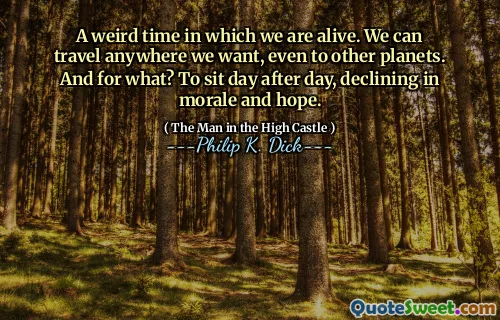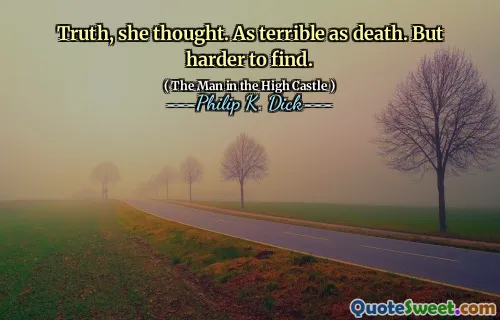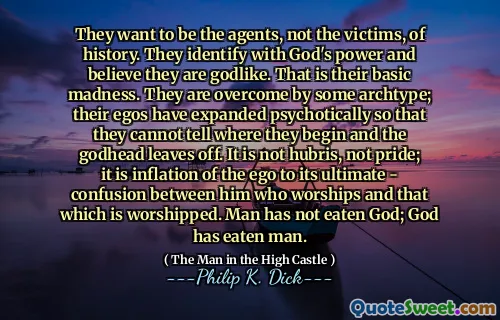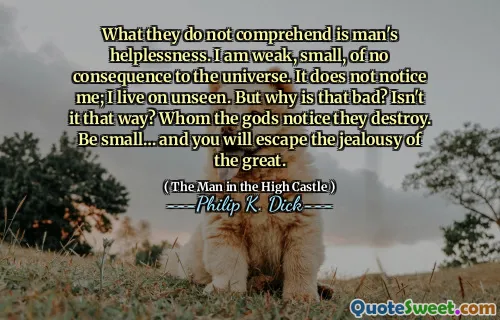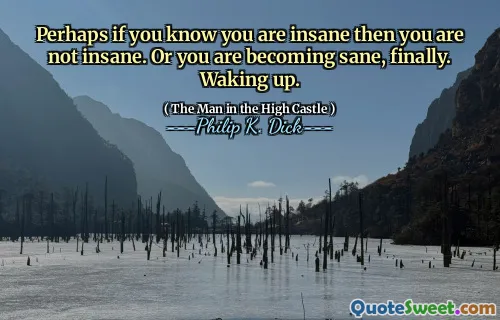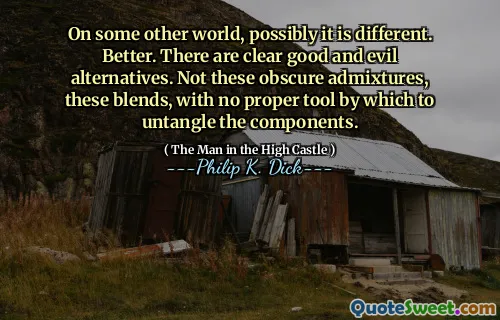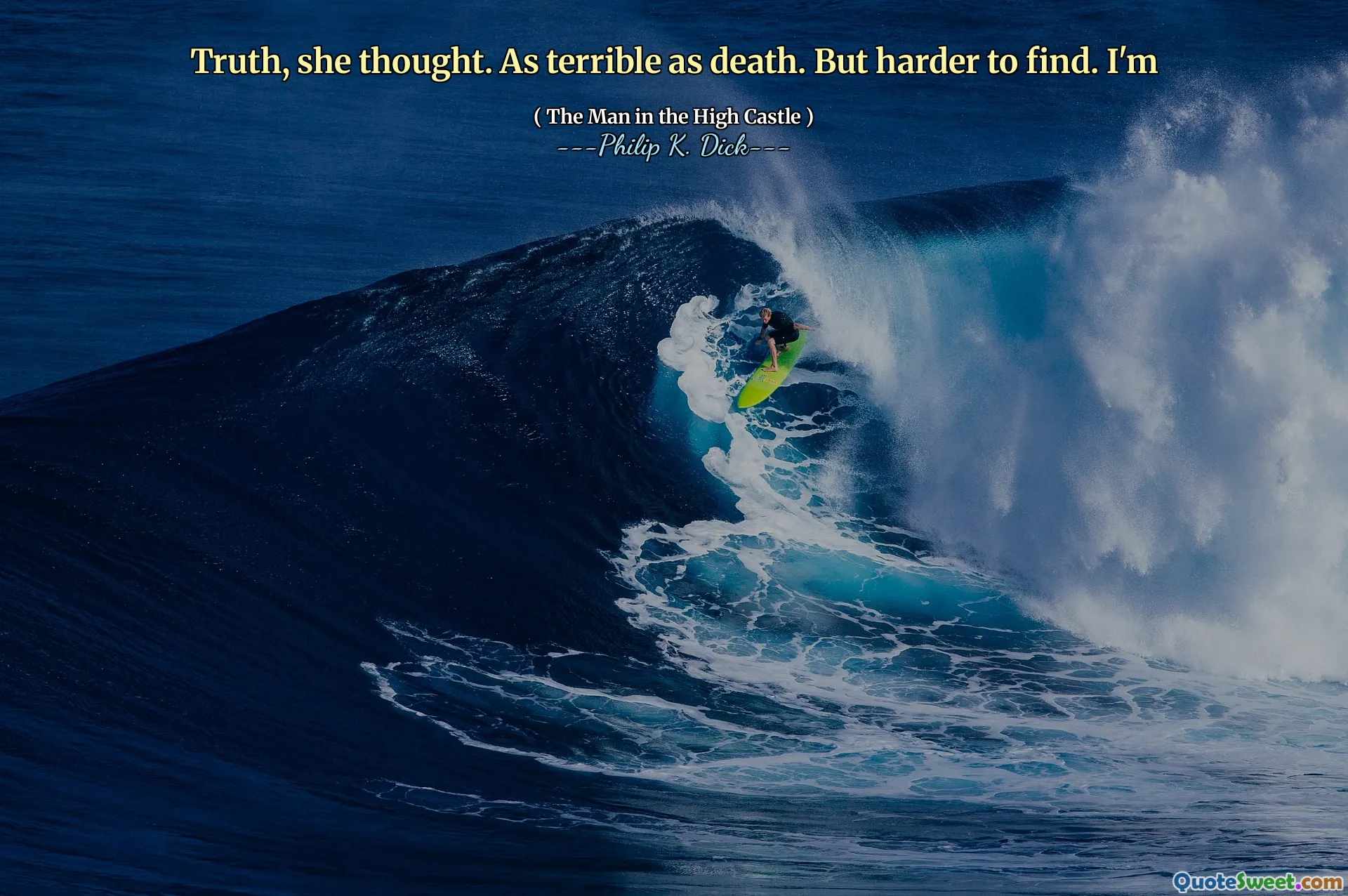
Truth, she thought. As terrible as death. But harder to find. I'm
In Philip K. Dick's "The Man in the High Castle," the protagonist reflects on the nature of truth. She compares it to death, suggesting that both are profound and impactful, yet while death is a definitive end, truth is elusive and difficult to grasp. This contemplation highlights her struggle to reconcile the complexities of reality in a world marked by alternative histories and distorted perceptions. The search for truth contrasts sharply with the stark finality of death, indicating that while endings are clear, understanding and discovering what is genuinely real is far more challenging. This thematic exploration underscores the novel’s critique of authoritarian regimes and the subjective nature of reality in a manipulated world.
In Philip K. Dick's "The Man in the High Castle," the protagonist reflects on the nature of truth. She compares it to death, suggesting that both are profound and impactful, yet while death is a definitive end, truth is elusive and difficult to grasp. This contemplation highlights her struggle to reconcile the complexities of reality in a world marked by alternative histories and distorted perceptions.
The search for truth contrasts sharply with the stark finality of death, indicating that while endings are clear, understanding and discovering what is genuinely real is far more challenging. This thematic exploration underscores the novel’s critique of authoritarian regimes and the subjective nature of reality in a manipulated world.
